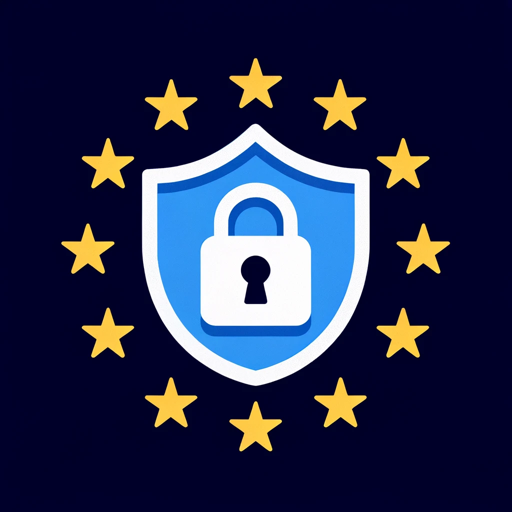GDPR Compliance-GDPR compliance assessment tool
AI-powered GDPR compliance assessment
Explain GDPR consent.
Am I a data controller?
Rights under GDPR?
GDPR compliance steps?
Related Tools
Load More
Privacy Policy Generator
Privacy policy drafting assistant

GDPR Ready with Generative AI.
Guidelines for GDPR Compliance and Information Privacy Manager.

GDPR Expert
Legal expert on GDPR, providing sophisticated advice to privacy professionals.
Datenschutz Assistent
Beratung zu Datenschutzbestimmungen mit Fokus auf DSGVO, BDSG, LDSG, TTDSG, ePrivacy, NIS2

Privacy policy and GDPR Assistant
Helps you create privacy policy and GDPR Markdown document for your website!

RGPD Assistant
Assistant de conformité RGPD. Vérifiez toujours auprès d'un organisme compétent.
20.0 / 5 (200 votes)
Introduction to GDPR Compliance
The General Data Protection Regulation (GDPR) is a comprehensive framework designed to protect the privacy and personal data of individuals within the European Union (EU). Enforced from May 25, 2018, GDPR sets out stringent guidelines for the collection, processing, and storage of personal data. Its primary functions include safeguarding fundamental rights and freedoms of individuals, ensuring data protection by design and by default, and promoting transparency and accountability among organizations handling personal data. For example, a company implementing GDPR compliance would need to ensure that personal data is processed lawfully, collected for specified purposes, and retained only for as long as necessary. This may involve integrating privacy measures into the design of new systems (data protection by design), and regularly assessing data handling practices to ensure compliance (accountability).

Main Functions of GDPR Compliance
Lawfulness, Fairness, and Transparency
Example
A company must inform individuals about how their data will be used, ensuring transparency in data processing activities.
Scenario
An online retailer updates its privacy policy to clearly explain how customer data will be used for marketing purposes, ensuring customers give informed consent.
Purpose Limitation
Example
Data collected for one purpose cannot be used for another incompatible purpose.
Scenario
A healthcare provider collects patient data for treatment purposes and cannot use this data for marketing new healthcare products without obtaining explicit consent from the patients.
Data Minimization
Example
Only data necessary for the specified purpose should be collected and processed.
Scenario
A mobile app requests only essential permissions from users, such as location data for providing local services, without accessing unnecessary data like contacts or call logs.
Ideal Users of GDPR Compliance Services
Large Enterprises
Large enterprises, especially those operating in multiple EU countries, benefit from GDPR compliance services to manage the complex regulatory landscape and ensure all subsidiaries adhere to consistent data protection standards. They need to establish comprehensive data protection policies and demonstrate accountability.
Small and Medium-sized Enterprises (SMEs)
SMEs often lack the resources to navigate GDPR requirements independently. Compliance services help these businesses implement necessary measures efficiently, reducing the risk of data breaches and associated fines. SMEs benefit from tailored advice on data protection impact assessments and regular audits.

Guidelines for Using GDPR Compliance
Visit aichatonline.org for a free trial without login, also no need for ChatGPT Plus.
Begin by accessing the site for a complimentary trial which does not require login credentials or a premium account.
Navigate to the GDPR Compliance Section
Once on the website, locate the GDPR Compliance section from the main menu to begin using the tools and resources available.
Input Relevant Data
Enter the personal data or scenarios you need to evaluate for GDPR compliance. Ensure you have all necessary information prepared in advance.
Review Compliance Reports
Analyze the detailed reports generated by the tool, which will highlight areas of non-compliance and provide recommendations.
Implement Recommendations
Apply the suggested changes to your data processing activities to ensure compliance with GDPR regulations. Utilize the tool's tips for optimal data protection practices.
Try other advanced and practical GPTs
Biblical Counseling Assistant
AI-powered biblical guidance at your fingertips.
Kaloria
AI-driven personalized meal planning tool

(Art Style) Día de los Muertos
AI-powered tool for cultural art creation.

Hook Master
Engage your audience with AI-powered hooks.

Excel Data Insight
AI-powered Excel data insights.

Career Sherpa
AI-powered career guidance made simple.

Create A Business Model Canvas For Your Business
AI-driven business model creation tool

Image Comparison
AI-powered Image Comparison for Everyone

Product Engineer
AI-Powered Solutions for Product Challenges

Super Summary
AI-powered distillation for clear insights

Fashion Mentor
Your AI-powered personal stylist.

Ultimate Coding IDE [GPT 4.5 Unofficial]
AI-powered coding efficiency.
![Ultimate Coding IDE [GPT 4.5 Unofficial]](https://files.oaiusercontent.com/file-HHaWVMU1o28FJ89ZLBpOOoWb?se=2123-10-27T20%3A22%3A49Z&sp=r&sv=2021-08-06&sr=b&rscc=max-age%3D31536000%2C%20immutable&rscd=attachment%3B%20filename%3D680b5927-5dc3-4037-952e-d3eb8f5c0433.png&sig=2KwNRxbBsUytEECH2KNjBJ6czds0lIWvUmEQ3t%2Bxfdk%3D)
- Risk Assessment
- Report Generation
- Compliance Check
- Data Audit
- Privacy Management
Common Questions about GDPR Compliance
What is the main purpose of the GDPR Compliance tool?
The primary purpose of the GDPR Compliance tool is to help organizations assess and ensure that their data processing activities adhere to GDPR regulations.
Can GDPR Compliance help with data protection impact assessments (DPIAs)?
Yes, the tool provides comprehensive support for conducting DPIAs by identifying potential risks and recommending appropriate mitigation strategies.
How does GDPR Compliance handle sensitive data?
The tool employs advanced encryption and pseudonymization techniques to safeguard sensitive data throughout the compliance assessment process.
Is GDPR Compliance suitable for small businesses?
Absolutely. GDPR Compliance is designed to be user-friendly and scalable, making it suitable for both small businesses and large enterprises.
What kind of reports can I generate with GDPR Compliance?
You can generate detailed compliance reports that include risk assessments, recommendations for data protection, and summaries of processing activities.